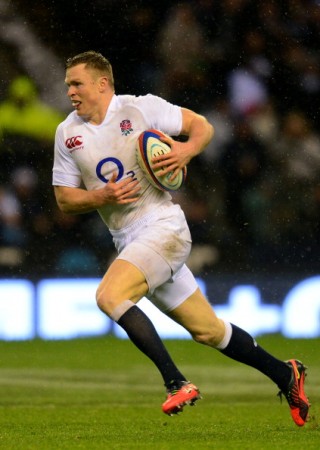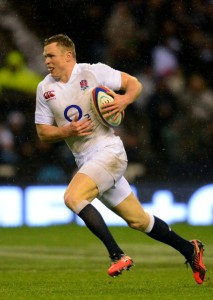
Forward grunt: Owen Franks and Tony Woodcock scrum down in training ahead of New Zealand's Twickenham Test
By Alan Pearey, Rugby World Deputy Editor
THERE IS no need for England fans to bow down in worship as the All Blacks run out at Twickenham this weekend in search of their tenth successive win in the fixture. But those attending should be in no doubt what a privilege it is to watch arguably the greatest-ever rugby team in the flesh.
Arguably? There have been great New Zealand teams before, including Buck Shelford’s team of the late Eighties that went 23 games unbeaten, and a few Springbok sides of the past were not half-decent. But has rugby been played on a plain such as this?
It starts up front
Dean Ryan, the excellent Sky analyst, says the skills of the front-five forwards lie behind the Kiwis’ astonishing success. Recent Tests have brought tries for Luke Romano and Tony Woodcock (v Wales), Andrew Hore (v Scotland) and Sam Whitelock (v South Africa) and support the notion that NZ’s big guys can pass and run like the best of them.
Brian Smith, London Irish’s director of rugby, provides a fascinating appraisal for the January edition of Rugby World. Among the many points raised is the All Blacks’ ability to win quick ruck ball with few numbers. They have an expression ‘one man, one bullet’, which means that if an opponent is trying to steal the ball at the breakdown, it should take only one All Black to clean him out.
NZ’s ability to commit so few numbers to the ruck without any impediment to quick ball is pivotal to how they play. They always seem to outnumber the opposition in all parts of the pitch, though it’s the pace and execution of their play that also leaves others gasping.
Go through the guts
If England are to beat them, they must be willing to pick and go straight down the middle, to make NZ think about numbers at the breakdown and stop them stringing an impenetrable defensive line across the width of the pitch.
When they kick, they would be well advised to kick off the park – well off the park, to prevent a quick throw – because the All Blacks are phenomenal at getting men aligned for a counter. And best not to contest defensive lineouts: Woodcock’s try in Cardiff was the third time (at least) that the All Blacks have split the pods, with Australia (2008) and France (2011) falling prey to a move the Kiwis call Teabag.
The greatest hurdle
Should England succeed, it will rank as their greatest victory. England field a weaker side than last weekend, with Owen Farrell substituting for the injured Toby Flood, who was comfortably the most-capped player in the home ranks. They made line breaks against the Boks but failed to provide the necessary support to the ball-carrier. Chris Ashton has had stick but is the only player with both the pace and intelligence to get on someone’s shoulder. His failure to find Mike Brown last weekend, the pass going to ground, owed more to Brown’s errant running line than Ashton’s inaccurate delivery.
Startling stats
While England are feeling their way with an inexperienced side, NZ’s starting XV share 788 caps and is boosted by the return of Dan Carter (not that anyone would relish facing his understudy Aaron Cruden, whose 19 wins without defeat represents the most successful start to a Test career in history).
They need three tries to bring up the half-century for the year (the next best is South Africa on 23) and they are looking to extend their unbeaten record in Europe to 29 matches, England’s narrow win in 2002 the last time the All Blacks were beaten on their northern hemisphere tour. They are unbackable favourites at 1-12 on.
If only they could rid their game of occasional acts of thuggery – the Hore sentence for his cowardly punch in Cardiff was disgracefully lenient – then they would be the perfect team.
Prediction: Anything under a 20-point defeat for England would represent a reasonable outcome against a team that always produces their best at Twickenham.
ENGLAND v NEW ZEALAND, Saturday 1 December, 2.30pm, Twickenham, Live on Sky Sports 1
ENGLAND: Alex Goode; Chris Ashton, Manu Samoa, Brad Barritt, Mike Brown; Owen Farrell, Ben Youngs; Alex Corbisiero, Tom Youngs, Dan Cole, Joe Launchbury, Geoff Parling, Tom Wood, Chris Robshaw (captain), Ben Morgan.
Replacements: David Paice, David Wilson, Mako Vunipola, Courtney Lawes, James Haskell, Danny Care, Freddie Burns, Jonathan Joseph.
NEW ZEALAND: Israel Dagg; Cory Jane, Conrad Smith, Ma’a Nonu, Julian Savea; Dan Carter, Aaron Smith; Tony Woodcock, Keven Mealamu, Owen Franks, Brodie Retallick, Sam Whitelock, Liam Messam, Richie McCaw (captain), Kieran Read.
Replacements: Dane Coles, Wyatt Crockett, Charlie Faumuina, Luke Romano, Victor Vito, Piri Weepu, Aaron Cruden, Ben Smith.
Referee: George Clancy (Ireland)






